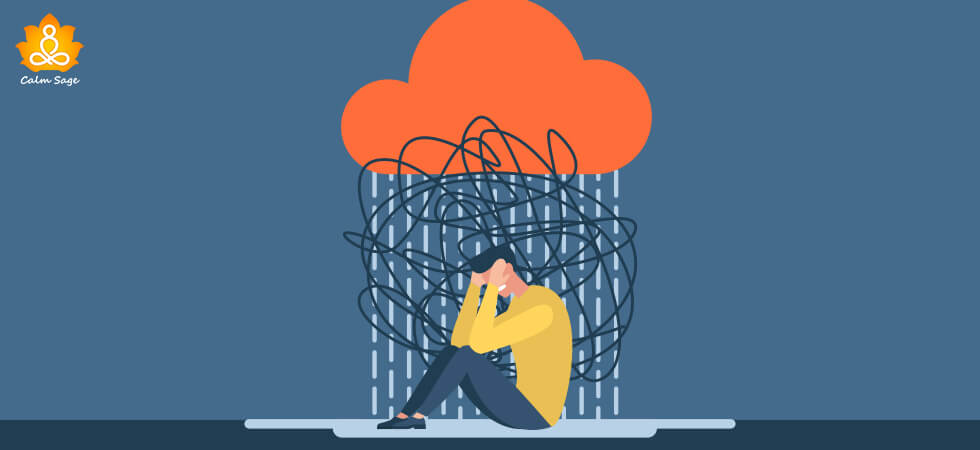Men And Mental Health: Stigma, Challenges, Stats, and More

In a World Health Organization (WHO) report from 2018, it was found that men were three times more likely to die by suicide. Did you know that poor mental health issues such as depression affected 45.7 million people while anxiety affected 44.9 million people?
Now, when it comes to mental health, the world faces a stigma and certain challenges. Each country, each culture seems to be affected differently. However, when I say “men’s mental health”, well, the situation gets graver.
As a survivor of depression, I’ve faced stigmas and as a woman, the idea of expressing my feelings has always been challenging. “What would others say?” “What would society say about me?” These questions arose in my mind. But if I think from a man’s perspective, they have it harder, don’t they not?
I mean, how couldn’t they? With the toxic masculinity and the ideas, adults usually force-feed inside a young man’s mind. “Boys don’t cry” “Boys don’t talk about girly things like feelings” “Men are strong and don’t need to worry too much”
Whether we like it or not, men’s mental health issues are left unchecked, undocumented, and unreported. This means that men rarely seek mental health support. Did you know that according to a survey of 2015-16, it was found that men were 9% more likely to be affected by alcohol use disorders than women?
It’s easy to disregard mental health because one is a man. But, aren’t men human too? Don’t they suffer from poor mental health?
Unfortunately, the world we grew up in doesn’t condone or provide men with a safe space (and sensitivity) to open up about their struggles. In many cultures, men are expected to be stoic and keep it together all the time.
In this blog, we’ll be discussing some of the most common social challenges faced by men when it comes to mental health and how you can support men’s mental health.
Stigma Around Men’s Mental Health: The Stats
In a 2018 report by the WHO, it was emphasized that more often than not, it’s the cultural stigma that prevents men from reaching out for help. In many ways, you can see men’s mental health described as a ‘silent epidemic’. Poor mental health is a serious concern that begs attention, one that is not appropriately given.
In a study from Canada published in the Mental Health Journal of 2016, it was found that in a survey it was found that people with no experience with depression, suicidal ideation, or poor mental health, more than ⅓ of them agreed to hold stigma over men’s mental health.
In this study, male participants were more likely to hold stigmatized views like “Men with depression are threatening” or “Men with depression can snap at any moment”
Among other participants with experience of depression and poor mental health, male participants responded saying that they feel embarrassed about seeking help for treatment of depression and poor mental health.
Even today, in many countries, and cultures, it is not easy for men and young boys to open up about their mental health issues even to their peers, family, and friends.
Social Challenges Men Face
First of all, men’s mental health struggles develop from different causes than women. For instance, a man’s issues are more likely to come from societal expectations, traditional gender roles, etc.
Men are always taught, ever since a young age, that they are the “breadwinners” of the family, that they need to show traditional masculinity including displaying strength and dominance, that they need to rely not on others when in need, and that they need not talk about or display their emotions openly.
Many a time, it’s these kinds of beliefs that hold men from seeking support and access to treatment.
Another challenge men face is the difference in seeking help. Men are less likely to seek treatment for issues such as depression, alcohol abuse, or stress. Of course, these challenges can all come down to social norms, a hesitancy to talk, and a downplay of their actual symptoms.
Did you know that in a survey, it was reported that 1 in 3 men took medication for depression while 1 in every 4 men spoke to a mental health professional? The difference in seeking help between women and men is staggering.
Common Mental Health Disorders Among Men
- Depression: Depression in men often goes undiagnosed. While both men and women can experience depression, the signs occur differently. Men have a higher risk of turning to substance abuse and becoming aggressive when depressed.
- Anxiety: 5 in 10 men suffer from an anxiety disorder, panic attacks, agoraphobia, or other specific phobias. Symptoms in men can include muscle pain, headache, sleep issues, rage, and crankiness.
- Bipolar disorder: Men are as susceptible to bipolar disorder as women. Symptoms in men can include manic episodes, greater aggression, co-occurring substance abuse, etc.
- Schizophrenia: Almost 90% of people diagnosed with schizophrenia are men. The symptoms can include delusions, hallucinations, disorganized thinking, etc.
- Eating disorder: Yes, men are too at risk of developing eating disorders. While women with eating disorders are more likely to be obsessed with weight loss, men are more focused on obtaining a muscular physique.
Please note that if these mental health issues are left unchecked, undiagnosed, and untreated, then men are likely to turn to alcohol and other drugs as a way to numb the feelings away.
Not only binge drinking but men are more likely to be at risk of committing suicide and suicide ideation.
- National Suicide Prevention Lifeline: 1800-273-8255
- Crisis Text Line: text HOME to 741741
- TrevorLifeline: 866-488-7386
- iCall: +91-9152-987-821
- AASRA: +91-9820-466-726
- Vandrevala Foundation: +91-9999-666-555
Symptoms In Men Are Different
Women and men experience poor mental health symptoms differently, as I mentioned above. An NIMH expert says that men with depression hide their feelings and emotions and may get aggressive, irritable, and angry while women are more likely to become sad or experience sadness.
Of course, these symptoms can physiologically differ too. For example, racing heart, stomach issues, and headaches are more common in men and men are more likely to seek medical helo for physical symptoms than emotional ones.
Supporting Men’s Mental Health
The first thing we can do to support men’s mental health is to consider mental health as important as one’s physical health. Silently suffering will only increase the pain and can cause future complications.
To address men’s mental health, we need to spread awareness and education about mental health in general. Changing how men are taught to think about depression, suicide, and poor mental health can be an important step forward in breaking free of the stigma surrounding men’s mental health.
Changing their belief and idea that getting help is a “sign of weakness” to “a show of strength” can change how one views mental health support.
Another step is to change the care for mental health. We need to provide more community-based support to reduce risk factors such as social isolation and embarrassment. A community-based approach and support is the best intervention practice to help reduce the stigma and get help. Finding a way to bridge the gap between seeking help with the help of mentorship, cultural groups, and community can be a great step in supporting men’s mental health.
More ways to help support men’s mental health can include:
- Looking for changes in your loved one’s behavior and mood.
- Talking to them and asking how they are feeling. This can be important if they have just experienced a traumatic event, such as divorce or a loss of a loved one.
- Encouraging them to talk to a mental health professional.
- Offering to look up healthcare providers, making an appointment for them, or attending the treatment sessions with them.
- Checking in with them regularly and not letting them shut their feelings out.
Having the support of a loved one can have a substantial effect on a man’s recovery journey.
Other organizations that can be useful for men with mental health issues:
- National Alliance on Mental Illness: 1-800-950-6264
- National Suicide Prevention Lifeline: Available 24/7 at 1-800-273-8255
- Face It Foundation: Provides support groups, peer support, and other resources for men with depression
- HeadsUpGuys: Provides coping strategies to deal with and prevent depression in men
- Movember Foundation: Focuses on men’s physical and mental health issues
Men’s mental health issues may differ from women’s, but they are just as influential. Seeking treatment can have a powerful impact on men who experience mental health issues.
Getting professional support and care from loved ones can also help ease the symptoms, improve the quality of life, and reduce the risk of suicide in men.
I hope this article was able to help you understand how deeply a man’s mental health is affected and how important men’s mental health awareness is. For more, you can write to us at info@calmsage.com or DM us on social media.
Calm Sage stands with and supports Men’s Mental Health! We’re here to help you!
Lots of love to you!
Take Care!




















